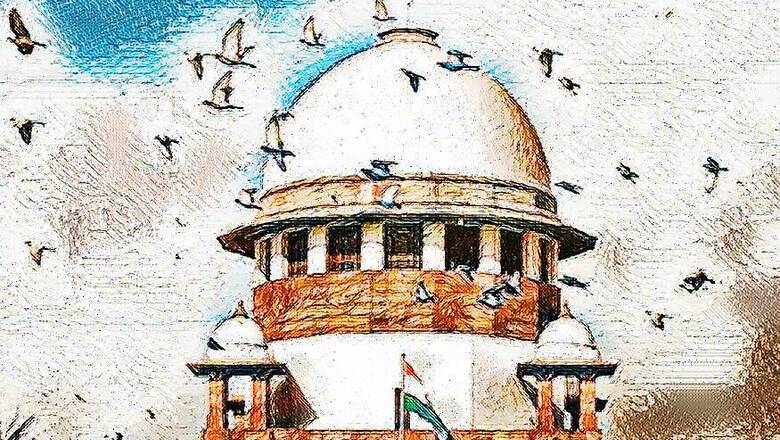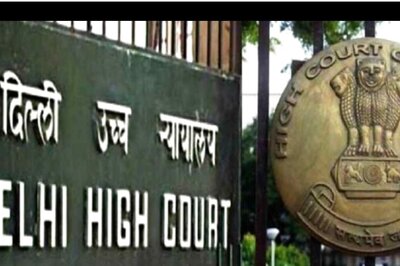
views
New Delhi: Underlining that liberty of individuals cannot be curtailed on the basis of conjectures, the Supreme Court on Wednesday said that our institutions should be robust enough to accommodate dissent.
The court was hearing submissions in connection with the arrest of five activists in the Bhima-Koregaon violence case when the bench emphasised upon a need to have a distinction between dissenting views and subverting law and order.
"We cannot stifle liberty on the altar of conjectures. We will look at all these attempts with the hawk's eyes," said Justice DY Chandrachud, who comprised a bench headed by Chief Justice of India Dipak Misra.
The judge went on to say that those at the helm of institutions may not like everything that is said about them but this cannot be grounds to stop them.
"Our institutions should be robust enough when there is an opposition to the system or even to this court. Then there has to be something different to constitute subversion of law and order as far as elected government is concerned," observed Justice Chandrachud.
He added, "We may not like it but we must also accept there could be dissent... Let us make a clear-cut distinction between an opposition and attempts to create disturbance, overthrow government etc.”
The comments came as Additional Solicitor General of India, Tushar Mehta, appearing for the Maharashtra government, sought to justify the arrests of the activists on the basis of the alleged incriminating materials collected against them during the investigation.
After Justice Chandrachud made these remarks, Mehta pointed out that it is also important to see who is the person making the statements.
"Dissent is fine but it is also important who is saying it. If the leader of a banned outfit says it, this will have a different connotation," said the law officer.
Senior lawyer Harish Salve, who represents the informant of the FIR in this case, also supported this view.
He said, "There must be a distinction between a dissenting view and a criminal act. One may say out of anger that I will burn the Constitution because it has proved to be unfair to certain class. But it is equally important to see who is saying it, what are you saying and where are you saying it".
It was at this point that Justice Chandrachud retorted that liberty can't be choked on mere conjectures.
The arguments in the case will continue on Thursday. Till then, the house arrest order of the activists shall continue.
On Monday, the court had said it will quash the case against the five arrested activists if the evidence against them is "cooked up" by the Maharashtra police in connection with the Bhima-Koregaon violence case.
Simultaneous raids had targeted the residences of prominent Telugu poet Varavara Rao in Hyderabad, activists Vernon Gonzalves and Arun Ferreira in Mumbai, trade union activist Sudha Bharadwaj in Faridabad and civil liberties activist Gautam Navalakha in New Delhi.
Rao, Bharadwaj, Farreira, Gonzalves and Navalakha were arrested under IPC Section 153 (A), which relates to promoting enmity between different groups on grounds of religion, race, place or birth, residence, language and committing acts prejudicial to maintenance of harmony.
Subsequently, a writ petition was filed in the top court by noted historian Romila Thapar and four other eminent individuals, contending the arrest of the activists was an instance of punishing dissent and difference of opinion.
As an interim reprieve, the bench had said the activists will be placed under house arrest and will not be jailed.


















Comments
0 comment